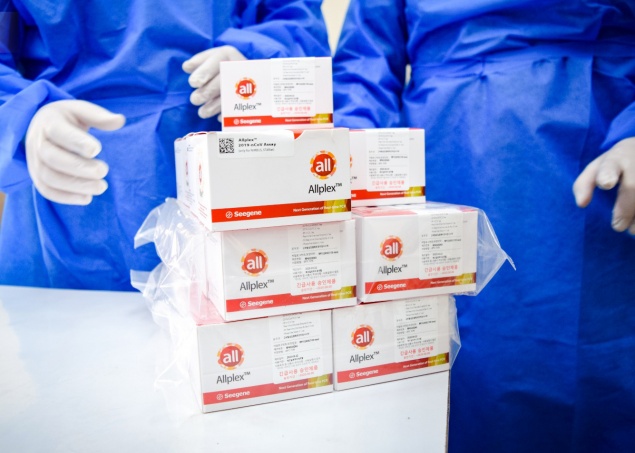GAZA STRIP – On Wednesday, June 17, 2020, His Holiness Pope Francis, through the Congregation for the Eastern Churches, donated 25 Covid-19 test kits[1] to the Ministry of Health in Gaza. The delivery of the kits was coordinated by the Apostolic Delegation, the Latin Patriarchate of Jerusalem and Caritas Jerusalem.
Last April, Pope Francis created an emergency fund to help mission countries that were severely affected by the spread of Covid-19. In the Middle East, and through the Congregation for the Eastern Churches, he donated 10 ventilators to medical centres in Syria and three others to St. Joseph Hospital in Jerusalem, as well as Covid-19 test kits to the Holy Family Hospital in Bethlehem. Just a week ago, the Holy Father sent 2,500 Covid-19 diagnostic tests to the Ministry of Health in the Strip, which was delivered by Caritas Jerusalem and Fr. Gabriel Romanelli, Parish priest of the Holy Family in Gaza.
Since the spread of the virus in Gaza, healthcare authorities have warned of the shortage in diagnostic tests in the besieged area that contains about 1.8 million people. They also expressed their need not only for more kits, but also for 100 ventilators and 140 beds for intensive care units. According to the Palestinian Ministry of Health, there has been 72 registered Covid-19 cases (15 are active) in the Gaza Strip, out of 1284 cases in the Palestinian territories as of today, June 23. This low percentage of people testing positive for Covid-19 might be an indication to the shortage in testing kits.
As part of the response to the Covid-19 outbreak, Caritas Jerusalem and the Ministry of Health in Gaza prepared a contingency plan, which included the halt of outreach work at Caritas Jerusalem Gaza health centre while continuing to provide medical services there. The plan also included the activation of three mobile medical teams to provide 24-hour service to treat non-Covid-19 patients in their homes. These mobile medical teams provide care services for vulnerable populations and wounded people.
In the West bank on the other hand, there has been a spike in new cases in the last two weeks, the highest being in Hebron with 551 active cases followed by Nablus with 32. On June 20, the Palestinian Authority was prompted to impose lockdowns that ranged from 2- 5 days in these two cities, allowing only pharmacies, grocery stores and bakeries to stay open.
Source: Latin Patriarchate of Jerusalem






